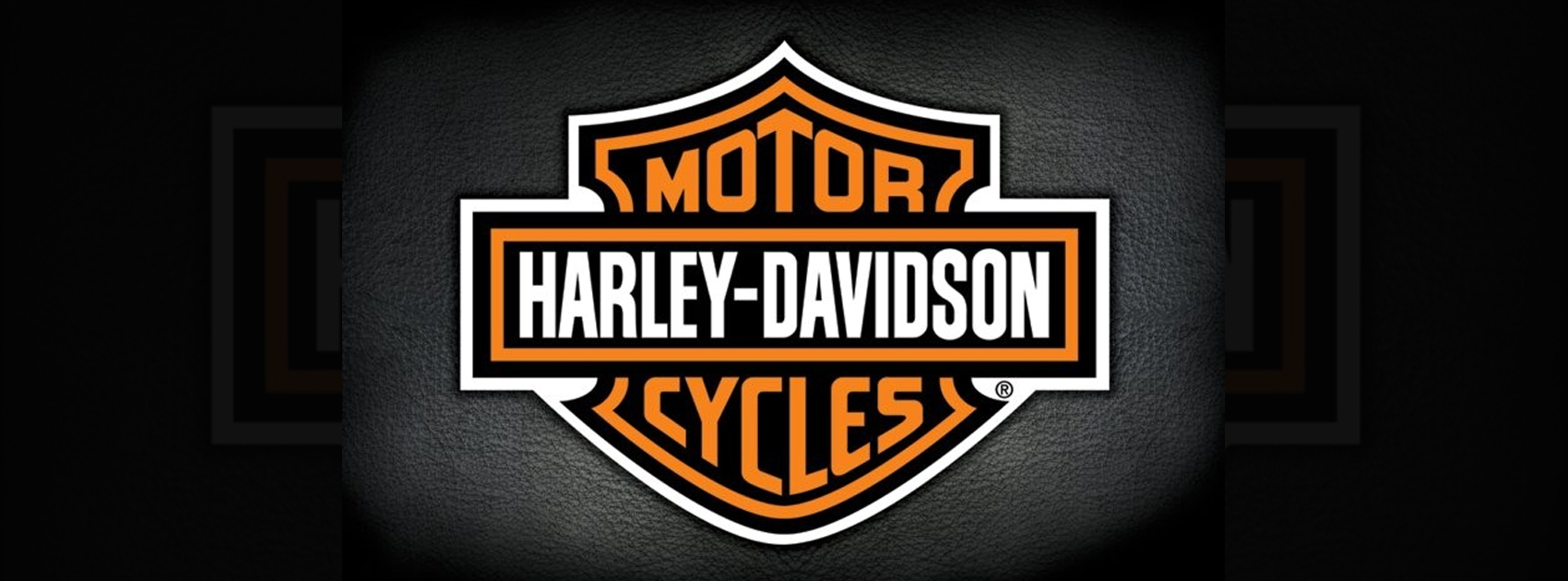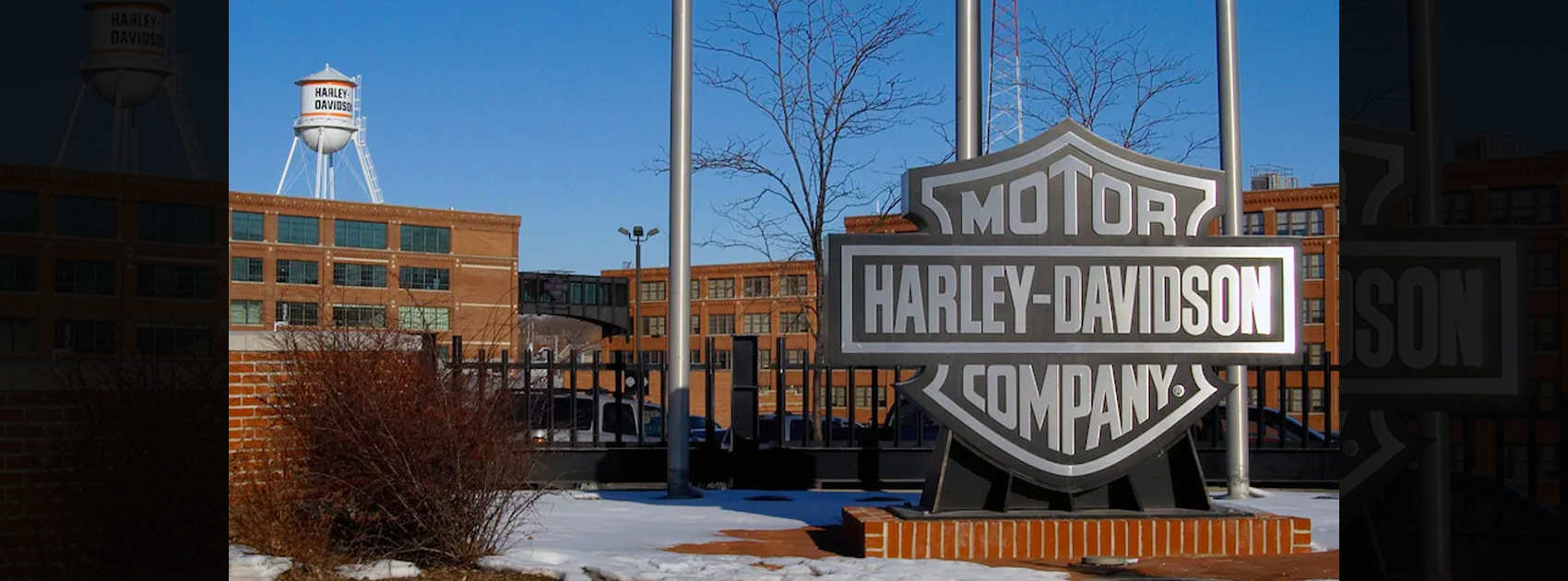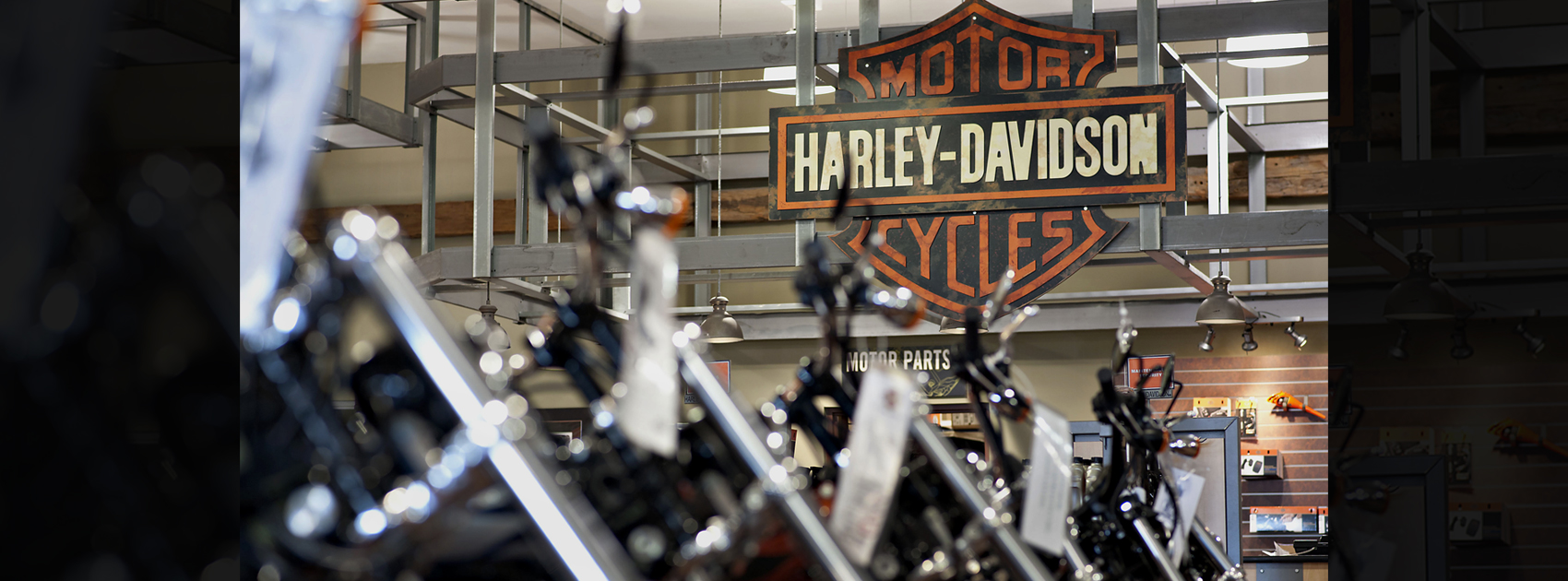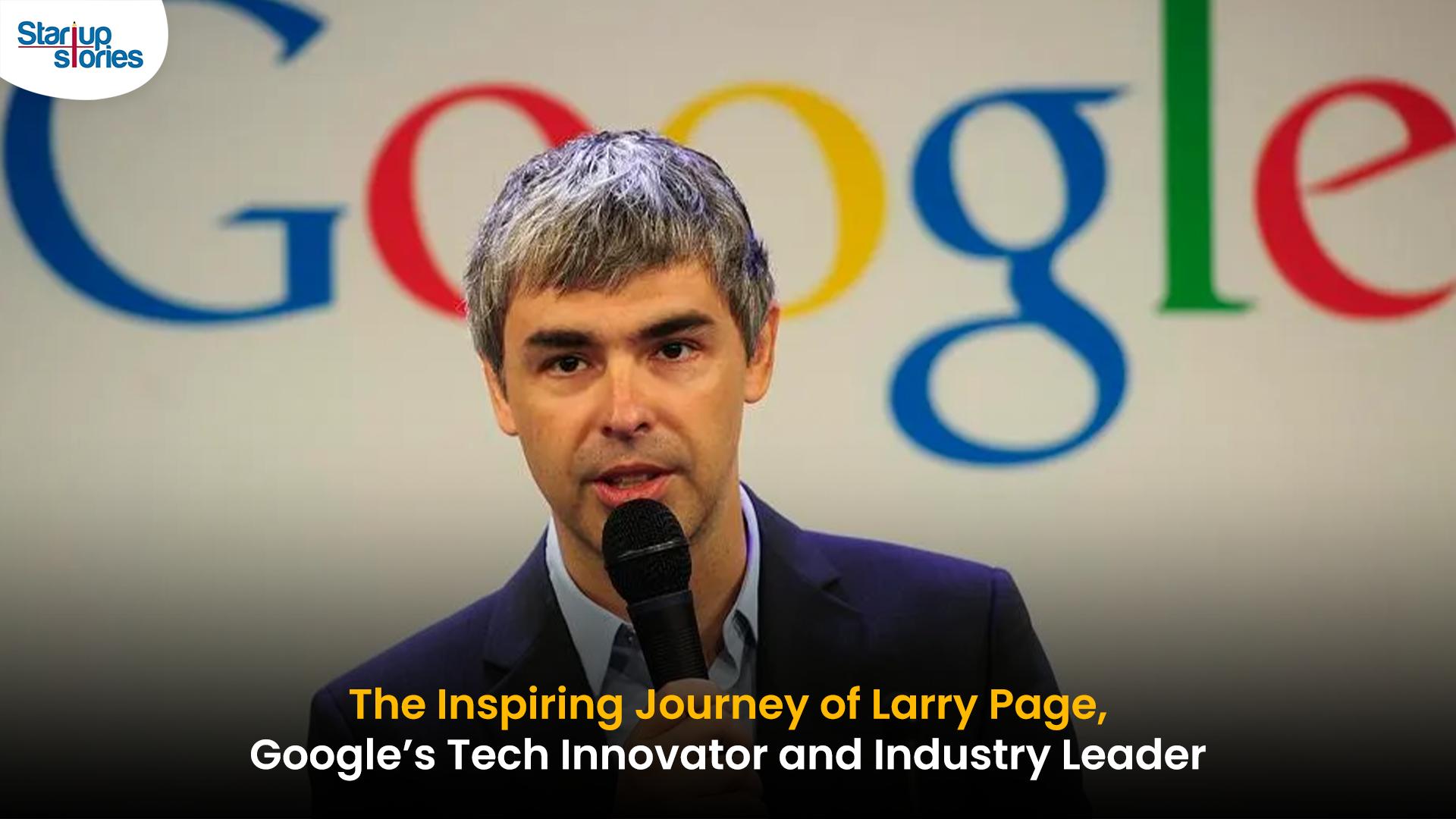Stories
Harley-Davidson Success Story

The dream of every motorbike enthusiast, Harley-Davidson was founded in the year 1903 in Milwaukee, Wisconsin. This American motorcycle manufacturing company has seen several ups and downs in its 116 year long history and is one of the two motorcycle companies to survive the Great Depression.
Founder William S. Harley, along with his childhood friend Arthur Davidson, started working on a small engine in Davidson’s family shed. Based on William S. Harley’s design, the duo developed the first Harley-Davidson motorcycle, which took almost 2 years to finish. The duo were then joined by Arthur Davidson’s brothers William A. Davidson and Walter Davidson and formed their company Harley-Davidson, producing a limited number of motorcycles. Harley and the brothers then went on to build their first factory in 1906 in Chestnut Avenue, Milwaukee, where the corporate headquarters of Harley-Davidson are situated now. The Company slowly started making profits and by 1914, it was ahead of its competitor, Indian, another motorcycle manufacturing company and was producing almost 16,500 machines a year.

Harley-Davidson’s popularity rose after America entered World War I and the demand for motorcycle for war efforts increased. Harley-Davidson sold nearly 20,000 motorcycles to the American military. Another great opportunity was World War II, when the Company sold nearly 80,000 motorcycles to the allied forces.
By 1920, Harley-Davidson became the largest motorcycle manufacturing company in the world, with its presence in 67 countries. However, the Company suffered greatly during the Great Depression, when its sales plummeted from 21,000 in 1929 to 3,703 in 1933. The Company somehow survived the Great Depression by introducing various new vehicles like a three wheeled utility motorcycle called Servi-Car, while legendary motorcycle manufacturers like Excelsior-Hendersen perished.
Harley-Davidson stayed popular all over the world until the 1960s. In 1969, after it was bought by American Machine and Foundry (AMF,) the Company suffered from a tarnished reputation. The AMF fired many of the Company’s workers and reduced production, resulting in poor quality yet expensive motorcycles. This move resulted in a decline of sales and popularity and the Company almost went bankrupt.
Harley-Davidson gained its reputation back in 1981, after the AMF sold the Company to a group of investors, which included William A. Davidson’s grandson, Willie G. Davidson. The new management decided to exploit the retro appeal of the Company by adopting the look and feel of the earlier motorcycles manufactured by the Company. This was considered to be a smart move and Harley-Davidson revived its lost reputation. The Company has been growing ever since and launched various new ranges of motorcycles.

In the 21st century, Harley-Davidson established itself as one of the most respected motorcycle manufacturers in the world and became one of the strongest brands. With a net worth of over $ 5.06 billion, Harley-Davidson has come a long way.
Videos
T.N. Seshan: The Fearless Reformer Who Redefined Indian Democracy

T.N. Seshan’s name stands tall in India’s history as the man who transformed the nation’s electoral system with extraordinary courage and integrity. Born in 1932 in Kerala, Seshan grew up with values of discipline, education, and service to the nation — virtues that shaped his illustrious journey. From his early brilliance at Madras Christian College to his advanced studies in public administration at Harvard University, Seshan’s path reflected rare determination and intellect. Joining the Indian Administrative Service in 1955, he built a reputation as a no‑nonsense officer committed to efficiency and honesty, serving in key roles such as Secretary of Defense and overseeing vital national programs.
As the Chief Election Commissioner of India in 1990, T.N. Seshan sparked a new era of electoral integrity. In a system once marred by corruption, violence, and malpractice, Seshan brought order, fear, and respect through his groundbreaking reforms. He introduced voter ID cards, imposed strict spending limits on campaigns, and insisted on transparency at every level of the election process. Despite criticism from political circles that labeled him dictatorial, his relentless pursuit of fairness empowered every citizen to vote fearlessly. Under his leadership, the Election Commission became a symbol of strength and integrity in Indian democracy.
Seshan’s passing in November 2019 marked the end of an era, but his message continues to resonate across generations. Leaders from every corner of the country mourned the loss of the man who restored faith in free and fair elections. His enduring legacy reminds us that true leadership lies not in wielding power, but in serving people with honesty, courage, and conviction. T.N. Seshan’s life remains a timeless inspiration a reminder that democracy thrives only when its citizens are vigilant, responsible, and fearless.
Entrepreneur Stories
Indian Man Quits JPMorgan, Takes 70% Pay Cut to Launch $6 Million Startup

Leaving behind a high-paying job at JPMorgan, an Indian entrepreneur embraced a 70% salary cut to pursue true purpose and passion in the startup world. Disenchanted with what he described as a “robotic” corporate routine, he sought meaningful work that made a real impact. This pivotal decision marked the beginning of his new journey, one focused on value creation rather than titles and corporate perks.
Powered by resilience and fresh perspective, the entrepreneur launched his own startup, prioritizing innovation and hands-on solutions. The road was challenging, but his vision resonated with the market: the startup quickly gained traction and raised $6 million—an impressive acknowledgement of its potential in a competitive landscape. Every hard lesson from early setbacks and bootstrapping paid off in real customer growth and investor confidence.
Today, his journey stands as an inspiring example for professionals seeking authentic success outside the corporate grind. By trading comfort for creative freedom, he grew a venture that solves important problems, generates jobs, and builds wealth beyond just salary. For ambitious founders, his story highlights the power of risk-taking, adaptability, and relentless focus on impact in India’s thriving startup ecosystem.
Videos
Larry Page: The Visionary Co-Founder Behind Google’s Global Success

Larry Page is a visionary technology entrepreneur and co-founder of Google, one of the world’s most influential companies. Born in 1973 in Michigan, Page grew up surrounded by computer technology, which inspired his passion for innovation from an early age. He studied computer engineering at the University of Michigan and later pursued his PhD at Stanford University, where he developed the revolutionary PageRank algorithm with Sergey Brin. This technology fundamentally changed the way search engines rank websites, making Google the most accurate and popular search engine globally.
The journey of Larry Page and Google began in 1998 when they officially launched the search engine from a small garage. Leveraging their unique algorithm, Google quickly surpassed competitors due to its ability to deliver highly relevant search results, transforming internet search forever. Under Larry Page’s leadership as CEO, Google expanded beyond search to launch groundbreaking products including YouTube, Gmail, and Google Maps, turning it into a global tech powerhouse that shapes how we access and interact with information online.
Larry Page later became the CEO of Google’s parent company, Alphabet Inc., driving innovation and investment in next-generation technologies such as artificial intelligence, autonomous vehicles, and healthcare solutions. His visionary leadership and commitment to technological advancement have cemented his legacy as one of the most influential figures in the tech industry. Today, Larry Page remains a key influencer in shaping the future of technology and digital innovation worldwide.













MM88
November 6, 2025 at 6:45 am
Với giao diện mượt mà và ưu đãi hấp dẫn, MM88 là lựa chọn lý tưởng cho các tín đồ giải trí trực tuyến.
J88
November 6, 2025 at 9:49 am
Đến với J88, bạn sẽ được trải nghiệm dịch vụ cá cược chuyên nghiệp cùng hàng ngàn sự kiện khuyến mãi độc quyền.
谷歌外推
November 8, 2025 at 8:54 pm
采用高效谷歌外推策略,快速提升网站在搜索引擎中的可见性与权重。谷歌外推
GO88
November 11, 2025 at 4:49 am
Tham gia cộng đồng game thủ tại Go88 để trải nghiệm các trò chơi bài, poker phổ biến nhất hiện nay.
iwin
November 12, 2025 at 7:35 pm
iwin – nền tảng game bài đổi thưởng uy tín, nơi bạn có thể thử vận may và tận hưởng nhiều tựa game hấp
Kuwin
November 14, 2025 at 4:55 pm
kuwin sở hữu kho game đa dạng từ slot đến trò chơi bài đổi thưởng, mang đến cho bạn những giây phút giải trí tuyệt vời.
MM88
November 20, 2025 at 9:20 pm
Khám phá thế giới giải trí trực tuyến đỉnh cao tại MM88, nơi mang đến những trải nghiệm cá cược thể thao và casino sống động.
cashback tipico casino
December 20, 2025 at 5:02 am
Bei Einzahlungen an einem Donnerstag können Sie mit dem Code WINTHUR eine Prämie von 30% auf
Ihre Einzahlung bis 100€ und 30 Freispiele in Anspruch nehmen. Für die Freispiele gilt
eine Umsatzanforderung von 50x. Dienstags gibt es einen besonderen Reload,
bei dem Sie Casino Freispiele für Ihre Einzahlung
bekommen. Lucky7even bietet auch ein Cashback-Programm an.
Beim Einzahlungsbonus hingegen besteht kein Gewinnlimit.
Durch die Freispiele können maximal 200€ gewonnen werden. Für die Aktivierung ist eine Mindesteinzahlung
von 20€ erforderlich. Neben dem Bonusguthaben werden außerdem 50 Freispiele ausgeschüttet.
Besonders die Tatsache, dass es sich um ein ganz neues virtuelles Casino handelt sowie der angebotene Willkommensbonus haben unser Interesse geweckt.
Von klassischen 3-Walzen-Spielen bis hin zu modernen 5-Walzen-Video-Slots finden Sie eine breite Palette an Themen, Stilen und Funktionen, die für beste Unterhaltung
sorgen. Lucky7even Casino bietet eine riesige Sammlung von über
5.000 Spielen, die jeden Spielertyp anspricht.
Kein Download erforderlich besuchen Sie einfach unsere Website im mobilen Browser und legen Sie los!
References:
https://online-spielhallen.de/boaboa-casino-login-ihr-tor-zur-aufregenden-casinowelt/
top crypto gambling sites australia
December 27, 2025 at 4:36 am
An easy day trip from Melbourne, Victoria’s coastal region is located within reach of Crowne Plaza guests with
day tours and shuttles running regularly from the Melbourne CBD.
A short walk from our hotel, Southbank features some
of the city’s most popular bars and eateries. Providing a unique and immersive experience, Melbourne Zoo is home to over 320 species from around the world.
If you’d like to explore something more upbeat,
Melbourne has all the best attractions and experiences to get
your heart racing. Melbourne is the perfect destination for a fun-filled family holiday, romantic getaway,
business trip, or weekend escape. For more information on applying for Jobs and
how to set up Job Alerts, please visit our FAQ page.
Whether you’re passionate about customer service or looking for a
career in a corporate environment, there’s many possibilities to explore at Crown Resorts.
We offer an exciting work environment with a range of services,
benefits, and development opportunities – there’s many reasons to join Crown Resorts.
Ascend to a full-fledged playground in the sky with
heated infinity pool, spa, beverages, dreamy daybeds and arguably the best view in Melbourne.
Unexpected touches at every turn, unfussy service delivered by good people, and
the best bed you’ve ever slept in. Register your details to receive our latest news and offers.
Click the button below to help us improve and provide a better experience.
References:
https://blackcoin.co/where-luxury-meets-excitement-pullman-reef-hotel-casino/
affordable Las Vegas family resort
December 27, 2025 at 7:46 pm
Your new AI coworker that takes care of the busywork for you – no matter your
role. We’ve also got toilets onboard, as well as power outlets.What’s more, you
get a generous luggage allowance when you travel with FlixBus with one carry-on bag and one checked bag, so
you can bring everything you need for your trip. Most of
our buses have onboard Wifi so you can catch up on your
favorite shows, chat with your friends or listen to music and
podcasts. Need easy access to the toilet or a table to get on with
some work whilst traveling? It couldn’t be easier to book your
travel from Sydney to Canberra with FlixBus – and when you book in advance, you can save money too!
For other payment options a percentage based fee applies, capped at a maximum per passenger
of $22 for Domestic or $120 for International travel.
Autumn is a particularly beautiful time of the year and a time of celebration with a packed events calendar.
Spring makes the perfect time to catch the Floriade Festival.
Winter brings averages of 12ºC and can be rather fresh, with
frost and snow landing on the nearby mountains,
the perfect time to visit the museums and enjoy
winter activities. Summertime in Canberra is pleasant with an average temperature of 27ºC.
Enjoy a range of entertainment on every flight, including TV and
films.±
Effortlessly bridge cultural divides with OpenL’s translations across over 100 languages,
from English to Arabic, Chinese, French, Spanish, and more.
216,801,597 documents translated since 2010 Doc Translator uses the awesome power of Google Translate to translate your documents.
These tools help non-native speakers improve their understanding of
English by providing translations in their own language.
These tools help break language barriers by providing
accurate and quick translations, making it easier to communicate effortlessly across different
languages. To translate files instantly, upload them
to a platform order form and select “Machine Translation” options based on an extensive dictionary powered by advanced translation technology.
References:
https://blackcoin.co/casino-jax-in-depth-review/
udyogseba.com
December 29, 2025 at 10:24 am
online casino paypal
References:
udyogseba.com
jobs.atlanticconcierge-gy.com
December 29, 2025 at 12:07 pm
online casino real money paypal
References:
jobs.atlanticconcierge-gy.com
generaljob.gr
December 30, 2025 at 2:38 pm
online american casinos that accept paypal
References:
generaljob.gr